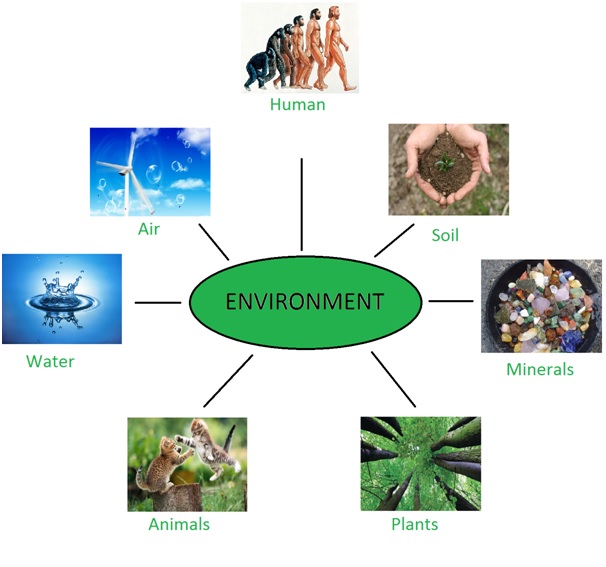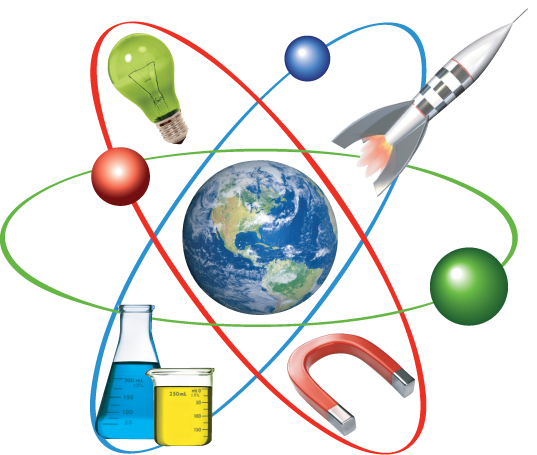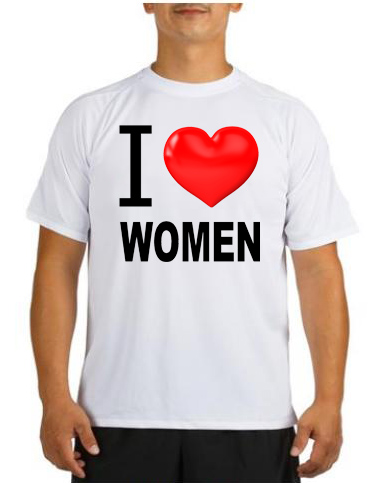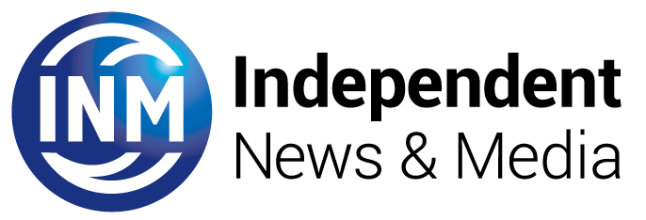BK101
Knowledge Base
News Directory
News Directory - Environment News - Science News - News Providers - Quick Look - News Coverage - Health News - Journalism - Propaganda - Broadcasting - News Papers - Media Outlets - Education News - Information - Technology News - News Sources - World News - Media Source - Independent News - Newscasters - Women's News - Events - Happy News - Bulletins - Music News - RSS Feeds - Inside Scoop - Citizen News Reporting - Senior News - Government News
 Before you listen to the
news or read the news,
you should first learn how to understand what
information
is and what it isn't. There are numerous
vague portrayals of
information in the media, so being
aware of the important facts is not easy. Even using the
internet is not without risk, because certain information is not
always protected from manipulation,
or is information accurately
understood by the average person.
Before you listen to the
news or read the news,
you should first learn how to understand what
information
is and what it isn't. There are numerous
vague portrayals of
information in the media, so being
aware of the important facts is not easy. Even using the
internet is not without risk, because certain information is not
always protected from manipulation,
or is information accurately
understood by the average person.
Information Bubble is when a person passively listens to only the information that they agree with, and they like this information without confirming if the information is actually true or totally factual. The person will also reject information just because they don't agree with it or don't like it, and not because they have proven that the information is false or in error. The person is basically cherry picking data and censoring information without recognizing distinctions and without getting a second opinion. And the person will also seek out like minded people in the belief that it confirms their opinion, which it doesn't. In order to receive reliable information, you have to know someone who is confirmed to be trustworthy, someone who provides factual information and has the knowledge needed to use that information effectively, and as well as, they are able to explain information simply enough to be understood well enough. You have to know someone who has also done the research and who has done the necessary investigations. Some people can be extremely lazy and not put the needed effort that is necessary to learn something valuable. Some people just find it easier to pretend they know something than actually learning about something. This can create a knowledge divide that most people are not even aware of. This type of isolation can be very damaging to peoples thinking. Some people can even misremember numerical facts just because those made up numbers fits their personal biases.
Popping the Information Bubble (youtube) - Sorry to Burst Your Bubble
Filter Bubble is when you watch the same TV programs or visit the same websites, which keeps you from seeing the whole picture, and also keeps you from thinking outside the box, or thinking outside the bubble you're in. A filter bubble is similar to witness tampering, where you only listen to the witnesses that you like, and you never listen to the other side of the story. A filter bubble can also be created when search engines control what you see using your personal meta data such as your location, past websites you visited and your search history. This causes users to become more separated from information that disagrees with their viewpoints, effectively isolating them in their own cultural or ideological bubbles. With most internet searches, the choices made by algorithms are not transparent. They are filtering information just like the TV does, and it's mostly for corporate benefit and not yours. This is another good reason why this website is extremely valuable, especially knowing that you can create your own false information if you never have access to the facts. But not all search engine results are bad, but how would you know? Search engines also collect information about the user, which can then be sold to second and third parties without the persons consent. And money from corporations is also used to manipulate search results that you see. So the facts can sometimes be hard to find, but not impossible. Be aware of the click bait, and try not to be a spoiled brat and act privileged.
Echo Chamber is a metaphor that describes a person who only hears what they speak as if they're hearing their own echo's and only listening to themselves, or, hearing other people speak the same words that they think. An echo chamber is a metaphorical description of a situation in which information, ideas, or beliefs are amplified or reinforced by communication and repetition inside a defined system, such as a group or organization where the members only listen to what the group says. Inside a figurative echo chamber, official sources often go unquestioned and different or competing views are censored, disallowed, or otherwise underrepresented. The echo chamber effect reinforces a person's own present world view, making it seem more correct and more universally accepted than it really is.
Echolalia (rumors) - Bias - Prejudice - Delusions - Seeing the Same Stars
You're Staring at the Wall means that you are not learning anything and basically just watching nothing informative. The wall keeps you closed in and closed minded. That is what most of the media is like. You're probably better off staring at a real wall.
Priming in the media states that media images stimulate related thoughts in the minds of audience members. Political media priming is "the process in which the media attend to some issues and not others and thereby alter the standards by which people evaluate election candidates.
Priming in psychology is a phenomenon whereby exposure to one stimulus influences a response to a subsequent stimulus, without conscious guidance or intention.
Framing in social sciences comprises a set of concepts and theoretical perspectives on how individuals, groups, and societies, organize, perceive, and communicate about reality. Narrow-Minded.
Influence of Mass Media has an effect on many aspects of human life, which can include voting a certain way, individual views and beliefs, or skewing a person's knowledge of a specific topic due to being provided false information. The overall influence of mass media has increased drastically over the years, and will continue to do so as the media itself improves.
We want certain information to be personalized and individualized at times depending on a persons needs, but not so much that the information becomes isolated or polarized. Even a social network can be a type of filter bubble when your friends all think alike. So your Sphere of influence may be blinding you.
The worst type of bubble is the Knowledge Bubble, where a persons lack of knowledge keeps a person blind to everything beyond the bubble. Learning valuable knowledge can pop that bubble and reveal a world that you never knew existed.
Translation Tools - Secret Code - Media Literacy
What is the News Supposed to Be Like? - Free Speech Zone.
3 Ways to Fix a Broken News Industry: Lara Setrakian (video and interactive text)
Information is layered, so you need to see beyond the surface of words and images. You need to see the whole picture and visualize all the layers underneath. Then you can accurately filter what information is needed, and avoid being distracted by irrelevant details and misinformation.
There is a serious problem with how people receive information and how people process information. You can ask two people the same question and get two different answers. How can that be? How can two judges who have access to the same information come up with two different answers? How can the Supreme Court Judges be split when they see the same information? There is no universal education standard or universal media standard that delivers facts and information that are consistent, reliable and accurate. We have math standards so that the equation 2+2=4 is the same for everyone. But when people can make up their own answers and say that 2+2=13, then you have lots of problems like crimes and corruption. So the human race is in desperate need of a universal communication standard that guarantees that everyone has the same facts and has the same procedure on how to process those facts effectively, efficiently, and accurately. Life exists because DNA has the instructions on how to develop. But humans don't have an instruction book for life, or a book that explains how to develop as a person. Group Decision Making - Conformity.
Sorry to Burst your Bubble is a saying that means when you have to tell someone an unpleasant truth about something. To give someone information that will probably disappoint them. To give someone bad news that ruins their expectations and reveals that their beliefs about something were wrong. This enlightenment metaphorically bursts the bubble that a person lived in, and now that the bubble has burst, they can finally see what they could not see before, the lies and the deceit that they were blind to, all because they lived in a bubble, and that bubble was their fantasy world.
Informing the Public - Know What's Going On - Briefed - Updated
Disseminate is to cause something to become widely known. Disseminator is someone who spreads the news or communicates information.
Proclamation to make public by announcement. An official declaration issued by a person of authority to make certain announcements known. Proclamations are currently used within the governing framework of some nations and are usually issued in the name of the head of state.
Signify is to make something known with a word or a signal or by expressing the meaning something.
Denote is to make something known or to give something meaning. Knowledge with a Purpose.
Convey is to make things known and to pass on information or transfer information to another or others.
Inform is to impart or communicate information or knowledge. To give or tell someone facts or information. Give an essential or formative principle or quality to someone. A speech act that conveys information or predictions.
Informer is one who reveals confidential information to the police or other authority. A source of enlightenment.
Crisis Management - Journalism - Whistle Blowing - Activism - Learning
Fill Someone In is to give them the necessary information or recently acquired information. Fill me in, what's happening? What's the latest? Give me an update.
Giving Someone a Heads-Up is to tell someone that something is going to happen or to warn someone about something that is going to happen. To look up because of possible danger. To be alert and have attention, and to look ahead.
Tell It Like It Is means for someone to describe the facts of a situation no matter how unpleasant they may be.
Tell It To Me Straight is to ask someone to speak bluntly, directly, and truthfully without giving a watered down version of the facts and without beating about the bush. It is to give someone just the facts that are straightforward and in a direct way. Blunt is characterized by directness in manner or speech without being subtle and without evasion. Evasion is a statement that is not literally false but that cleverly avoids an unpleasant truth. Simplifying Messages.
Don't Pull Any Punches is to speak very bluntly and directly, without regard to whether one's words may upset someone. To behave unrestrainedly, hold nothing back or to act without restraint or limitations. Just remember that the truth is debatable.
Priorities - Information Extraction
Up to Speed is when you have all the latest and most recent information about a subject or activity and are able to do it well.
Substance is the choicest or most essential or most vital part of some idea or experience. The idea that is intended. What a communication is about; the information conveyed or area of interest. The real physical matter of which a person or thing consists. Gist of It.
Knowledge Communications - Knowledge Distributing - Knowledge Economy - Information Stations
Get the Word Out is to inform people and let people know about something important.
Notify is to inform somebody of something that may be important.
Notification is informing someone using words. The action of notifying someone or something.
Notification System is a combination of software and hardware that provides a means of delivering a message to a set of recipients.
Emergency Action Notification is used to alert the residents of the United States of a national emergency.
Notification Service provides means to send a notice to many persons at once. Notifications may be by e-mail, telephone, fax, text messages, etc. Identical messages may be broadcast, or the messages may be personalized. A message may, or may not require a response.
Public Interest Law - Welfare or Well-Being of the General Public
Update is the latest new information that updates your old information and brings it up to date. Giving you a more current and more modern updated version of something. Reboot.
Patch is a set of changes to a computer program or its supporting data designed to update, edit, fix, or improve it. A short set of commands to correct a bug in a computer program. A connection intended to be used for a limited time.
Disclosure is the speech act of making something evident or clearly revealed to the mind or the senses or judgment. Capable of being seen or noticed.
Full Disclosure is to fully disclose evidence of proven factual information gathered and present it to an individual or group. Full disclosure is the acknowledgement of possible conflicts of interest in one's work. Full disclosure is the U.S. Securities and Exchange Commission's requirement that publicly traded companies release and provide for the free exchange of all material facts that are relevant to their ongoing business operations. No secrecy and no withholding of important information.
Explaining Risk - Consumer Education - Advising
Open Knowledge promotes and shares information at no charge, including both content and data. Open Source Curriculum.
Media Transparency is determining how and why information is conveyed through various means. Information Stations.
Briefing or Being Briefed is a condensed summary of relevant facts that outlines important matters and information that is needed to be prepared for the actions that have to be taken that would help maintain stability and also improve the quality of life by becoming more effective and more efficient. A briefing helps to explain your priorities and the most important responsibilities that you have. Things that you have to do, but it does not include everything that you can do. You still have other options and other choices that you have to make during the day. The briefing is just the beginning. May the force be with you. To Do List.
Debriefing is a report of a mission or project or the information so obtained. It is a structured process following an exercise or event that reviews the actions taken. As a technical term, it implies a specific and active intervention process that has developed with more formal meanings such as operational debriefing. It is classified into different types, which include military, experiential, and psychological debriefing, among others.
President's Daily Brief is a Top Secret document produced and given each morning at 07:45 to the President of the United States. Citizens need their Briefing too. What if you can't understand an intelligence briefing?
State of Affairs is a situation or set of circumstances that are happening at a particular time within a society or group. Usually things that are important and require attention.
Matter at Hand is the issue, topic, or task that is currently being discussed or is the current priority.
Scope is an estimate or a determination of the nature, value, quality, ability, extent, or the significance of something. The state of the environment in which a situation exists. The Gist of It.
Reality Check is when you are reminded of the state of things in the real world.
Reminded is to cause someone to remember something, especially a commitment or necessary course of action.
Situation Report is a a report on a situation containing verified, factual information that gives a clear picture of the "who, what, where, when, why and how" of an incident or situation. Many organizations use situation reports to give superiors the input and information they require to make correct and appropriate decisions. Emergency management organizations, government agencies, armed services, businesses, law enforcement agencies, humanitarian nongovernmental organizations and diplomats all rely on situation reports. White House Situation Room.
When it comes to the state of affairs, an accurate determination of the facts can often be misunderstood when personal beliefs and biases are incorporated into the message, which would cause information to be subjective. You need a lot of knowledge and information if you want to see the whole picture accurately enough.
Status Quo is the perceived existing conditions or the perceived state of affairs regarding social or political issues. Usually measured without a standard baseline, so its interpretation can be vague. The status quo can also mean to keep things the way they presently are, similar to the conservative mentallity that doesn't explain what they are actually conserving, except for conformity. Status quo ante is Latin for the way things were before.
Condition is a state of health or stability at a particular time. Information that should be kept in mind when making a decision. A statement of what is required as part of an agreement. The procedure that is varied in order to estimate a variable's effect by comparison with a control condition.
Intelligence Assessment is the development of forecasts of behavior or recommended courses of action to the leadership of an organization, based on a wide range of available information sources both overt and covert. Assessments are developed in response to requirements declared by the leadership in order to inform decision making. Assessment may be carried out on behalf of a state, military or commercial organization with a range of available sources of information available to each.
Need to Know is having access to information that is necessary for one to conduct one's official duties. Certain information can be restrictive because it is considered to be very sensitive, so only a few people may have access to the information because they are on a need to know basis. Right to Information.
Right to know is the legal principle that the individual has the right to know the chemicals to which they may be exposed in their daily living. It is embodied in federal law in the United States as well as in local laws in several states. "Right to Know" laws take two forms: Community Right to Know and Workplace Right to Know. Each grants certain rights to those groups.
Insight is the understanding of a specific cause and effect within a particular context. The term insight can have several related meanings: A piece of information. The act or result of understanding the inner nature of things or of seeing intuitively or noesis. An introspection. The power of acute observation and deduction, discernment, and perception, called intellection or noesis. An understanding of cause and effect based on identification of relationships and behaviors within a model, context, or scenario. An insight that manifests itself suddenly, such as understanding how to solve a difficult problem, is sometimes called by the German word Aha-Erlebnis. The term was coined by the German psychologist and theoretical linguist Karl Bühler. It is also known as an epiphany, eureka moment or the penny dropping moment. Sudden sickening realisations identifying a problem rather than solving it, so Uh-oh rather than Aha moments are further seen in negative insight. A further example of negative insight is chagrin which is annoyance at the obviousness of a solution missed up until the point of insight, an example of this being the Homer Simpson's D'oh!
Inside Information is information that is only available to people within an organization. Secrecy.
Public Knowledge is information that is generally known and is usually available to anyone and that most people usually know because it has been reported in the news. "If you don't know, now you know."
My work is public knowledge, but public knowledge doesn't always work. Just putting the knowledge out there is not enough. People need to understand the value of knowledge and be interested in becoming more knowledgeable, and have a commitment to learning. Everyone also need access to knowledge. Just because information is out there, that doesn't mean that it's in there, or in the hearts and in the minds of people. There has to be a follow-up or a test so that we can confirm that the information or knowledge has been understood effectively.
Public Interest Journalism gives people the information they need to take part in the democratic process. They provide independent journalism that matters. Ethical Journalism Network.
Public Interest is the welfare or well-being of the general public and society. Public Interest Law.
National Interest is a rationality of governing referring to a sovereign state's goals and ambitions, be they economic, military, cultural, or otherwise.
Common Good refers to either what is shared and beneficial for all or most members of a given community, or alternatively, what is achieved by citizenship, collective action, and active participation in the realm of politics and public service.
Creative Commons is an international network devoted to educational access and expanding the range of creative works available for others to build upon legally and to share.
Science Commons was a creative commons project for designing strategies and tools for faster, more efficient web-enabled scientific research. The organization's goals were to identify unnecessary barriers to research, craft policy guidelines and legal agreements to lower those barriers, and develop technology to make research data and materials easier to find and use. Its overarching goal was to speed the translation of data into discovery and thereby the value of research. Hackerspace.
Open Science make scientific research, data and dissemination accessible to all levels of an inquiring society, amateur or professional.
Open Science Data is publishing observations and results of scientific activities available for anyone to analyze and reuse.
Open Data is the idea that some data should be freely available to everyone to use and republish as they wish, without restrictions from copyright, patents or other mechanisms of control.
Access to Knowledge should be linked to fundamental principles of justice, freedom, and economic development.
Announcement is a formal public statement. A public statement containing information about an event that has happened or is going to happen.
Public Service Announcement is a message in the public interest disseminated without charge, with the objective of raising awareness of, and changing public attitudes and behavior towards, a social issue.
Bulletin Board is a surface intended for the posting of public messages, for example, to advertise items wanted or for sale, announce events, or provide information. Bulletin boards are often made of a material such as cork to facilitate addition and removal of messages, as well as a writing surface such as blackboard or whiteboard. A bulletin board which combines a pinboard (corkboard) and writing surface is known as a combination bulletin board. Bulletin boards can also be entirely in the digital domain and placed on computer networks so people can leave and erase messages for other people to read and see, as in a bulletin board system.
Community Bulletin Board is a digital signage system that public, educational, and government access cable television providers use as a Barker channel to keep communities up to date of events listings, weather and other news that can be delivered by using digital on-screen graphics. The electronic bulletin board concept is a form of Technological convergence.
Narration is a message that tells the particulars of an act or occurrence or course of events. The act of giving an account describing incidents or a course of events. The second section of addressing an audience formally in which the facts are set forth.
Messenger or Courier is a person or thing that carries a message. Carrying communications, verbal or written.
Dispatcher are communications personnel responsible for receiving and transmitting pure and reliable messages, tracking vehicles and equipment, and recording other important information. Diplomat.
Using the Internet to Disseminate Information (PDF) - Freedom of Information Act.
News Media are those elements of the mass media that focus on delivering news to the general public or a target public.
Aggregator is client software or a web application which aggregates syndicated web content such as online newspapers, blogs, podcasts, and video blogs (vlogs) in one location for easy viewing. Search Aggregator (search engines).
Aggregate is to gather and combine several different elements of separate units to form into a mass or whole. A sum total of many different things taken together. A material or structure formed from a loosely compacted mass of fragments or particles. The whole amount.
Brief in law is a written legal document used in various legal adversarial systems that is presented to a court arguing why one party to a particular case should prevail. Trial briefs are presented at trial to resolve a disputed point of evidence. Legal briefs are used as part of arguing a pre-trial motion in a case or proceeding. Merit briefs (or briefs on the merits) refers to briefs on the inherent rights and wrongs of a case, absent any emotional or technical biases. Amicus briefs refer to briefs filed by persons not directly party to the case. These are often groups that have a direct interest in the outcome. Appellate briefs refer to briefs that occur at the appeal stage.
Introduce is to bring something before the public for the first time. Something that comes before and indicates the approach of something or someone. Furnish with a preface or introduction. Presented.
Introducing is to cause something or someone to be known personally. Bring something new to an environment. Bring in a new person or object into a familiar environment. Bring before the public for the first time. Initiate.
Introduction is introducing something new. Formally making a person to be known to another or to the public. The act of starting something for the first time or the first section of a communication. A new proposal.
Proclamation a public or official announcement, especially one dealing with a matter of great importance. The public or official announcement of an important matter. A clear declaration of something. is an official declaration issued by a person of authority to make certain announcements known. Proclamations are currently used within the governing framework of some nations and are usually issued in the name of the head of state.
Declaration in law is a formal or explicit statement or announcement. The formal announcement of the beginning of a state or condition. An authoritative establishment of fact. Declarations take various forms in different legal systems. Independence.
Science Communication is the practice of informing, educating, sharing wonderment, and raising awareness of science-related topics. Science communicators and audiences are ambiguously defined and the expertise and level of science knowledge varies with each group. Two types of defined science communication are science outreach (typically conducted by professional scientists to non-expert audiences) and science "inreach" (expert to expert communication from similar or different scientific backgrounds). An example of inreach is scholarly communication and publication in scientific journals. Science communication may generate support for scientific research or study, or to inform decision making, including political and ethical thinking. There is increasing emphasis on explaining methods rather than simply findings of science. This may be especially critical in addressing scientific misinformation, which spreads easily because it is not subject to the constraints of scientific method. Science communicators can use entertainment and persuasion including humour, storytelling and metaphors. Scientists can be trained in some of the techniques used by actors to improve their communication.
News is information about current events. This may be provided through many different medias such as word of mouth, printing, postal systems, broadcasting, electronic communication, or through the testimony of observers and witnesses to events. Common topics for news reports include war, government, politics, education, health, the environment, economy, business, fashion, and entertainment, as well as athletic events, quirky or unusual events. Government proclamations, concerning royal ceremonies, laws, taxes, public health, and criminals, have been dubbed news since ancient times. Humans exhibit a nearly universal desire to learn and share news, which they satisfy by talking to each other and sharing information. Technological and social developments, often driven by government communication and espionage networks, have increased the speed with which news can spread, as well as influenced its content. The genre of news as we know it today is closely associated with the newspaper.
What's the buzz, tell me what's a-happening? (youtube)
When you have a lot of valuable knowledge, it creates a lot of energy inside you. This causes you to feel the need to share this knowledge and release some of that energy to the receiver, like with electron sharing. But when people can't understand you, or get what you're talking about, then you have to be careful what you say, how you say it, why you say it and when you say it. Conversations need to be modified for the listener. This is why personalized education is so extremely effective and efficient. You just can't state facts, you also have to interpret and translate those facts in a meaningful way that can be clearly understood. Releasing the energy of knowledge needs to have a receiver who can understand and utilize that knowledge effectively and efficiently. The biggest responsibility of having knowledge is knowing how to communicate knowledge effectively and efficiently. If you give someone information, and then they misuse that information or misunderstand that information, and then they do something harmful to themselves or harmful to others, then there may be a casual relation to that information. And its not so much the information that you give a person, it's the information that person already has that is being used to process and interpret new information. If someone has a lack of knowledge and also lacks the ability to effectively process information, then just giving them a small amount of information or incomplete information, may do more harm than good. There has to be instructions that comes with information.
The news is not where you go to get informed. Most of the information presented on news media outlets is fragmented, random or vague. This causes most people to experience the illusion of learning. People receive the information passively as if there is no other information needed. Too much of the News is dramatized, so most people learn very little, and they also become either distracted, misinformed or traumatized. We have to Design our own News Information Platform. We then need to teach people how to learn effectively and efficiently as possible. Learning shouldn't be a chore. Learning should be exhilarating experience. Even though some of the things that we learn can be incredibly devastating, we should always be grateful that we can learn. To know will always be better than not knowing. How would you know if you didn't know?
I need to know - Mark Anthony (youtube) - If it's true don't leave me all alone out here, Wondering if you're ever gonna take me there, Tell me what you're feeling cause I need to know, Girl you've gotta let me know which way to go, Cause I need to know, I need to know, Tell me baby girl cause I need to know, I need to know, I need to know, Tell me baby girl cause I need to know.
Multitasking - Doing Several Things at Once
Multimedia Multitasking involves using TV, the Web, radio, telephone, print, or any other media in conjunction with another. Also referred to as "simultaneous media use," or "multi-communicating," this behavior has emerged as increasingly common, especially among younger media users. Simultaneous Multimedia Multitasking, for when you have to Search Far and Wide, and Dig Deep in order to get the Facts about the world so you can see the world for what it is. Parallel Computing.
 Human Multitasking
is doing more than one thing at a time, or doing
several things at once, almost like what the
human body does
every second, but not as good. Multitasking is a human
ability to perform
more than one task, or activity, over a short period of time. Like talking on the phone while writing an e-mail. Or
cooking several things on the stove at the same time while maintaining
temperatures and cooking times, and measuring ingredients and preparing
other food items as part of a big meal. People can also
play several
musical instruments at the same time or play the
piano while
singing at the same time, where you need to
coordinate several body movements
simultaneously. But we're not effective in
paying
attention to multiple tasks at the same time, so we switch back and forth
between tasks. The trick to effective multitasking is
knowing when to
switch focus. But multitasking does have its flaws. We can't
effectively listen to someone speaking when we're thinking about
something else. Like with the Dual-Task Paradigm
and
Cognitive Flexibility limits. Is multitasking bad for you? No.
But abusing your
ability to multitask is definitely bad for you. Like when trying to do too
many things at once. Don't over estimate your abilities. You still have to learn how to use things effectively and efficiently,
like with technology. This is
because learning the wrong things
is bad for you, and doing the wrong things is bad for you, especially
habitual things that you're not conscious of. One of the bad
things about multitasking is that your
awareness is
fragmented and
unfocused, so mistakes can easily happen.
The good thing about doing things at the same time
is that it can save time and increase your
productivity, but only when you fully
understand each task separately and have
mastered each
function and use. So you
still need to know how to focus on just one
thing at a
time, and know how put all your energy towards just one thing, and do it
without being distracted. Is
multitasking an experience?
Yes.
Long-Term Multitasking is working on
several different goals in the same time period. Focusing on one thing at
a time, but having several different things to focus on in the same day or
same time period. Like learning several different skills in the same year. Or
cross training by exercising several body regions in the same workout. Or
balancing two or three jobs or careers or
several responsibilities in the same day
or in the same week. You have to be able to mentally detach from your work
and also mentally reconnect or reattach to your work and be able to
activate work-related goals, while feeling dedicated to your work. Multitasking is an important
skill that
everyone needs to master. Multi-tasking shows the power of the brain and
its logical analyzing ability to manipulate multiple variables held in the
mind simultaneously.
Human Multitasking
is doing more than one thing at a time, or doing
several things at once, almost like what the
human body does
every second, but not as good. Multitasking is a human
ability to perform
more than one task, or activity, over a short period of time. Like talking on the phone while writing an e-mail. Or
cooking several things on the stove at the same time while maintaining
temperatures and cooking times, and measuring ingredients and preparing
other food items as part of a big meal. People can also
play several
musical instruments at the same time or play the
piano while
singing at the same time, where you need to
coordinate several body movements
simultaneously. But we're not effective in
paying
attention to multiple tasks at the same time, so we switch back and forth
between tasks. The trick to effective multitasking is
knowing when to
switch focus. But multitasking does have its flaws. We can't
effectively listen to someone speaking when we're thinking about
something else. Like with the Dual-Task Paradigm
and
Cognitive Flexibility limits. Is multitasking bad for you? No.
But abusing your
ability to multitask is definitely bad for you. Like when trying to do too
many things at once. Don't over estimate your abilities. You still have to learn how to use things effectively and efficiently,
like with technology. This is
because learning the wrong things
is bad for you, and doing the wrong things is bad for you, especially
habitual things that you're not conscious of. One of the bad
things about multitasking is that your
awareness is
fragmented and
unfocused, so mistakes can easily happen.
The good thing about doing things at the same time
is that it can save time and increase your
productivity, but only when you fully
understand each task separately and have
mastered each
function and use. So you
still need to know how to focus on just one
thing at a
time, and know how put all your energy towards just one thing, and do it
without being distracted. Is
multitasking an experience?
Yes.
Long-Term Multitasking is working on
several different goals in the same time period. Focusing on one thing at
a time, but having several different things to focus on in the same day or
same time period. Like learning several different skills in the same year. Or
cross training by exercising several body regions in the same workout. Or
balancing two or three jobs or careers or
several responsibilities in the same day
or in the same week. You have to be able to mentally detach from your work
and also mentally reconnect or reattach to your work and be able to
activate work-related goals, while feeling dedicated to your work. Multitasking is an important
skill that
everyone needs to master. Multi-tasking shows the power of the brain and
its logical analyzing ability to manipulate multiple variables held in the
mind simultaneously.Coordinate is to bring movements into a common action or condition. To bring order and organization to things that are of equal importance, rank, or degree. Collaboration.
Coordination is the skillful and effective interaction of movements. The regulation of diverse elements into an integrated and harmonious operation. Senses.
The thing about multitasking is that I can temporally ignore the things that I am grateful for and ignore the things that I need to live, so that I can temporally focus on something important that I need to think about in a particular moment in time. But when I am distracted or worried about things that keeps me from being focused on things that I really need to think about, then that's when multitasking becomes a problem instead of a solution. Thinking is important, but it's what you actually think about that is the most important thing, and not just the process of thinking, but what exactly are you processing.
Time Management - Focus - Planning - Subconscious - Inattentional Blindness
Computer Multitasking is a concept of performing multiple tasks (also known as processes) over a certain period of time by executing them concurrently. New tasks start and interrupt already started ones before they have reached completion, instead of executing the tasks sequentially so each started task needs to reach its end before a new one is started. As a result, a computer executes segments of multiple tasks in an interleaved manner, while the tasks share common processing resources such as central processing units (CPUs) and main memory. Multitasking does not necessarily mean that multiple tasks are executing at exactly the same time (simultaneously). In other words, multitasking does not imply parallel execution, but it does mean that more than one task can be part-way through execution at the same time, and that more than one task is advancing over a given period of time. Even on multiprocessor or multicore computers, which have multiple CPUs/cores so more than one task can be executed at once (physically, one per CPU or core), multitasking allows many more tasks to be run than there are CPUs. In the case of a computer with a single CPU, only one task is said to be running at any point in time, meaning that the CPU is actively executing instructions for that task. Multitasking solves the problem by scheduling which task may be the one running at any given time, and when another waiting task gets a turn. The act of reassigning a CPU from one task to another one is called a context switch; the illusion of parallelism is achieved when context switches occur frequently enough. Operating systems may adopt one of many different scheduling strategies, which generally fall into the following categories: In multiprogramming systems, the running task keeps running until it performs an operation that requires waiting for an external event (e.g. reading from a tape) or until the computer's scheduler forcibly swaps the running task out of the CPU. Multiprogramming systems are designed to maximize CPU usage. In time-sharing systems, the running task is required to relinquish the CPU, either voluntarily or by an external event such as a hardware interrupt. Time sharing systems are designed to allow several programs to execute apparently Simultaneously. In real-time systems, some waiting tasks are guaranteed to be given the CPU when an external event occurs. Real Time Systems are designed to control mechanical devices such as industrial robots, which require timely processing. Dual Processing - Batch Process.
Quick Look at the News
 You should know how to
scan and
scroll without being
distracted by the
click-bait.
You should know how to
scan and
scroll without being
distracted by the
click-bait.
National Public Radio (OK sometimes) they stopped allowing commenting because they hated the fact that people were making readers aware of the bullshit in some of their stories. All things considered? Almost.
CBS (not good, a lot of propaganda and adds)
NBC (not good, a lot of propaganda and adds)
World News (not bad sometimes)
News Lookup (world headlines)
Reddit (unusual news)
Science Daily (good, but not great)
Digg (OK sometimes)
Associated Press (same news)
Press Reference (world media resources)
Sports News
Citizen Journalism
Check your Local Town News and Check your Local State News, but be aware of media control.
"The news, it's not bad, it's not good, it's not fully understood. It's nothing until someone makes it something, and it's nowhere unless someone puts it somewhere."
News Papers
 News Papers State
-
Cities
News Papers State
-
CitiesNews Papers by Country (wiki)
Historical Newspapers from the 1700s–2000s.
Online Newspaper is the online version of a newspaper, either as a stand-alone publication or as the online version of a printed periodical.
Online Newspapers
Community Newspapers
New York Times
Washington Post
Wall Street Journal
Financial Times
Business Week
Newseum
Newspaper Assoc. America
Newspaper Deathwatch
Decline of Newspapers (wiki)
Editor and Publisher
Directories
Education News
 Education News
Education News Independent Education News
Chronicle
Chalk Beat - NY Chalk Beat
College News
Education Policy Blog Spot
Washington Education Blog
Education Blog
Public Media
Inside Higher Ed
Educational TV
Online Education
Teaching Resources
Digital Text Books
Information Sources
Health News
Physical Health NewsMental Health News
Sexual Health
Drugs - Addictions
Child Development
Consumer Protection
Environment News
Environment News
Green Biz
Air Quality Maps
Environmental Justice Tool
Air Quality Monitors
Clean Air Act
Pollution
Power Outages Map
Squirrels
Pollen Count Forecast
Water Quality
Weather
Grist
Environmental News Network
Environmental Health News
Global Witness
Green News
The Daily Green
Green Tech Media
Good Clean Tech
Earth 2 Tech
Earth Times
Eco Razzi
Eco Geek
Green Diary
Green Ideas
Natural News
Watershed Media
Energy Daily
The Energy Daily
Energy Harvesting Journal
Energy Alternatives
Plenty Magazine
Conservation Magazine
Environmental Graffiti
Fast Coexist
Clean Technica
Waste Recycling News
Mother Nature Network
Mother Earth News
Smart Planet
Environmental Group
Ensia
Alternative Energy News
Science Communication Network
Ocean Protection
Mass Animal Deaths
Environmental Education
Environmental Films
Environmental Websites
Living Green Ideas
Science News
Science Daily
Universität Innsbruck
National Science Foundation
Science Friday
Scientific American
Science News
Science Hax
Science Blogs
The Science Network
National Academy of Sciences
Discovery News
D News Channel
New Scientist
Simons Foundation Quanta
Plos One
Everyone Plos
E-Life Sciences
Science Mag
Iop Science
The Scientist
Eureka Alert
Phys Org
Spectrum
Red Orbit
Laboratory Equipment
Futurity
Futurism
Nature
Christian Science Monitor
Today I found Out
Whoops! 12 Tales Of Accidental
Brilliance In Science
Science Websites
Space
Funny but True News
The Daily Show(Jon Stewart, and now Trevor Noah)
John Oliver (youtube)
Stephen Colbert (youtube)
Happy News
Good News NetworkGood News
Sunny Skyz
Good Net
Up Worthy
Medium
Good
Positively Positive
The Optimist
Values
The Nicest Place
Do Nothing for 2 Minutes
Art News
Odd News
Oddly EnoughFark
Wild Ammo
Gawker
The Daily Beast
Stumble Upon
Largest Chocolate Bar
Weird News
Weekly World News
Atlasobscura
Music News
Music NewsMusic Websites
Entertainment Weekly
Examiner
Art News
Women's News
Women's News
Women's Advancement Deeply
Women's Day
Native Women of Canada
Imagining Ourselves
Everyday Health
Women to Women
Women in the World
Carla Perez was the first woman from the Americas to summit Everest and K2 in the same year without supplemental oxygen. (2019). Sxth woman (first Latin American) to summit Everest without supplemental oxygen (2016).
Women's Health
Women’s Health
 Women's History Project
Women's History ProjectWomen's History Month
Basketball Hall of Fame
Great Women
Hello Girls was the colloquial name for American female switchboard operators in World War I.
Women's Sports Foundation.
She Jumps.
Gender Equality.
Suffragette were members of women's organizations in the late-19th and early-20th centuries which advocated the extension of the "franchise", or the right to vote in public elections, to women. Franchise is a statutory right or privilege granted to a person or group by a government (especially the rights of citizenship and the right to vote).
Women's Rights.
National Women's Law Center.
All's Well and Fair (youtube)
I Am Woman (youtube) - I Am Woman-Helen Reddy (youtube)
Health Threat Women Face (video)
Women Inventors.
150 Greatest Albums Made by Women.
Top 10 Female Guitarists of All Time (youtube)
Women Letter Writers in early modern Europe created lengthy correspondences, where they expressed their intellect and their creativity; in the process, they also left a rich historic legacy. Over time, a large number of women's correspondences have been made the subject of publications. Some among them ignored the literary value of these missives that were sometimes circulated by their recipients.

Women Journalists.
Girl Stunt Reporter
Happy Black Woman
#BlackWomensHistoryMonth
Alice Coachman
Florence Nightingale was an English social reformer and statistician, and the founder of modern nursing. (12 May 1820 – 13 August 1910).
Women's History Museum.
Advancing Women Artists
Young Women's Leadership Network.
3 lessons on success from an Arab businesswoman: Leila Hoteit (video and interactive text)
A political party for women's equality: Sandi Toksvig (video and interactive text)
Desi Linden becomes first U.S. woman to win Boston Marathon in over 30 years. (2 hours, 39 minutes, 54 seconds).
How women in rural India turned courage into capital: Chetna Gala Sinha (video and interactive text).
Emily Harrington becomes the first woman to free-climb El Capitan's Golden Gate route in a single day. After years of effort, the 34-year-old climber motored up El Cap's Golden Gate route and now joins the ranks of Alex Honnold, Tommy Caldwell, and Lynn Hill.
Maya Gabeira set a new world record. The 73.5-foot wave she surfed on February 11 in Nazaré, Portugal, was the largest wave surfed by anyone this year, earning Gabeira the WSL’s 2020 women’s XXL Biggest Wave Award. It also broke her own previous record, a 68-foot wave. By contrast, this year’s men’s XXL Biggest Wave Award winner, Kai Lenny, rode a 70-foot wave.
Women who write Code - Women and Medications - Women and Education
Fourth-Wave Feminism is a phase of feminism that began around 2012 and is characterized by a focus on the empowerment of women and the use of internet tools. Centered on intersectionality, the fourth wave examines the interlocking systems of power that contribute to the stratification of traditionally marginalized groups. Fourth-wave feminists advocate for greater representation of these groups in politics and business, and argue that society would be more equitable if policies and practices incorporated the perspectives of all people.
Feminism is a range of social movements, political movements, and ideologies that aim to define, establish, and achieve the political, economic, personal, and social equality of the sexes. Feminism incorporates the position that societies prioritize the male point of view, and that women are treated unfairly within those societies. Efforts to change that include fighting gender stereotypes and seeking to establish educational and professional opportunities for women that are equal to those for men.
The Feminine Mystique is a book by Betty Friedan that is widely credited with sparking the beginning of second-wave feminism in the United States. It was published on February 19, 1963 by W. W. Norton. In 1957, Friedan was asked to conduct a survey of her former Smith College classmates for their 15th anniversary reunion; the results, in which she found that many of them were unhappy with their lives as housewives, prompted her to begin research for The Feminine Mystique, conducting interviews with other suburban housewives, as well as researching psychology, media, and advertising. She originally intended to create an article on the topic, not a book, but no magazine would publish her article. During 1964, The Feminine Mystique became the bestselling nonfiction book with over one million copies sold. In the book, Friedan challenged the widely shared belief in the 1950s that "fulfillment as a woman had only one definition for American women after 1949—the housewife-mother." The phrase "feminine mystique" was created by Friedan to show the assumptions that women would be fulfilled from their housework, marriage, sexual lives, and children. It was said that women, who were actually feminine, should not have wanted to work, get an education, or have political opinions. Friedan wanted to prove that women were unsatisfied but could not voice their feelings. Chapter 1: Friedan points out that the average age of marriage was dropping, the portion of women attending college was decreasing and the birthrate was increasing for women throughout the 1950s, yet the widespread trend of unhappy women persisted, although American culture insisted that fulfillment for women could be found in marriage and housewifery. Although aware of and sharing this dissatisfaction, women in the 1950s misinterpreted it as an individual problem and rarely talked about it with other women. As Friedan pointed out, "part of the strange newness of the problem is that it cannot be understood in terms of the age-old material problems of man: poverty, sickness, hunger, cold." This chapter concludes by declaring "We can no longer ignore that voice within women that says: 'I want something more than my husband and my children and my home.' Chapter 3: Friedan recalls her own decision to conform to society's expectations by giving up her promising career in psychology to raise children, and shows that other young women still struggled with the same kind of decision. Many women dropped out of school early to marry, afraid that if they waited too long or became too educated, they would not be able to attract a husband. Friedan argues at the end of the chapter that although theorists discuss how men need to find their identity, women are expected to be autonomous. She states, "Anatomy is woman's destiny, say the theorists of femininity; the identity of woman is determined by her biology." Friedan goes on to argue that the problem is women needing to mature and find their human identity. She argues, "In a sense that goes beyond any woman's life, I think this is a crisis of women growing up—a turning point from an immaturity that has been called femininity to full human identity. Chapter 7: Friedan discusses the change in women's education from the 1940s to the early 1960s, in which many women's schools concentrated on non-challenging classes that focused mostly on marriage, family, and other subjects deemed suitable for women, as educators influenced by functionalism felt that too much education would spoil women's femininity and capacity for sexual fulfillment. Friedan says that this change in education arrested girls in their emotional development at a young age, because they never had to face the painful identity crisis and subsequent maturation that comes from dealing with many adult challenges. Significant numbers of women responded angrily to the book, which they felt implied that wives and mothers could never be fulfilled, devalued the roles as mothers and housewives, but of course they were wrong and they over reacted. The book implied that women should have choices and freedoms, the same as men do. But rightwing extremists always freak-out and make crazy assumptions.
Independent News
Democracy Now
Free Press
The Conversation is an independent source of news and views from the academic and research community.
The Real News - youtube
Green is the New Red
On The Issues
Global Voices
Global Witness
Truth Out
Truth Dig
World Politics Review
The Nation
Politico
Breitbart
News Vine
Economist
Economic Policy Institute
TV News Lies
Fox News was Removed for Slander and Fake News Violations (shock therapy failure)
Info Wars was Removed for Slander and Fake News Violations
Prison Planet
Showdown
Roar Mag
Wiki Leaks - Film - Julian Assange (wiki)
Computer Chaos Club
Hack Bloc
w00w00
Open Leaks.org
Dis Info
Want to Know
Witness
Citizen News Reporting
Media Matters
History Commons
Live Leak
Indy Media
Freedom Watch on Fox
News Meedan
Public Knowledge
Aljazeera
Independent
Independent
Project Censored
American Public Media
The American Prospect
Voice of America
The New American
New America
New America Media
Total News
Free Press
Free Republic
Now Public
Pro Publica
Texas Freedom Network
The Black Vault
Serendipity
Source Watch
Watch our City
The Peoples United
Republic Broadcasting
Guerrilla News
Reality Zone (Books)
Roads and Kingdoms
The Smoking Gun
Global Security
News Watch
The Real Timer
Open Source Intelligence
Objective Standard
Peace News
Spread the Word
Stop the Robbery
Potholer 54 (youtube)
The Phaedrus (youtube)
Citizen Tube (youtube)
Liberal Viewer (youtube)
We are Change
Documentaries
Daily Source
Press Think
Alt Week Lies
Corbett Report
All Voices
Media Storm
Common Sense Media
Common Dreams
Fairness
Alternet
Vocativ
Daily Kos
Five Thirty Eight
Twenty Two Words
Amnesty USA (youtube)
The Juice Media
Get Crooked Media
Trust
Newsiosity
Reason.tv
Inverse
Attn
Vox
World News
United Press International
 National Review
National ReviewGulf News
World News
China Digital Times 2 3
RT USA
RT America (youtube)
RT Russian Times
TASS Russian News Agency
English Russia
India Times
Big Story - Associated Press
UAE Interact
BNET Articles
The Today Show
MSN
NBC
USA Today
TIME
News Week
US News
Reuters
AOL News
Slate
Reason
Meri News
The Onion
Press TV
Times of Israel
The Star
World Court TV
Australian Assoc. Press
BBC
Guardian
Epoch Times
The Root
Buzz Feed
CNN
C-SPAN
The Diplomat
Blog Talk Radio
Talking Alternative
Mother Jones
Wopular
I Report
One News Page
AlJazeera TV English (youtube)
Press TV
Raw Story
Video Websites
Technology News
 En Gadget
En GadgetE Week
Tech Crunch
Tech Explorist
Tech Times
Technology News - CNET
Datamation
IT World
Gizmodo
Uber Gizmo
Robotics (robots)
Tech Blog
Tech Republic
ZD Net
Zergnet
Wired
Big Think
Daily Wireless
Retail Technology
Extreme Tech
Geek
Recode
Ross Dawson Blog
Technology Review
Advice on Emerging Technologies
Next Gov
Spectrum ieee
Gigaom
Fast Company - Design
Phys Org
The New Atlantis
Daily Tech
Info World
Singularity Hub
Ars Technica
Videos 1 2 3 4 5
Networks Security Blog
Video Tech Help
Digital Media Wire
Laughing Squid
Art-Culture-Technology
Government News
White House Press Corps Counter Punch
Counter PunchGovernment Watchdogs
Human Rights Resources
Corporate Abuse Websites
Senior Citizen News
Senior Citizen StoriesExperiences of a Lifetime
Caregiving
Military News
Army TimesMilitary Websites
News Directories
Dmoz News - DmozAbyz News Links
Google News
Yahoo News and Media
TV New Stations Directory
Assignment Editor
Media Directories
News Categories (wiki)
Farming News
Farming NewsFood News
Water News
Weather News
WeatherSurvival Tips
Adventure News
Adventure Racing NewsAdventure Stories
Travel Tips & Reviews
Internet News
Internet Searching TipsInternet Safety
Internet Information
News Feeds
Popular RSS FeedsFeedage
List of RSS Feeds
NPR RSS News Feed
RSS (wiki)
F.B.I. News Feeds
The Skimm e-mail newsletter.
